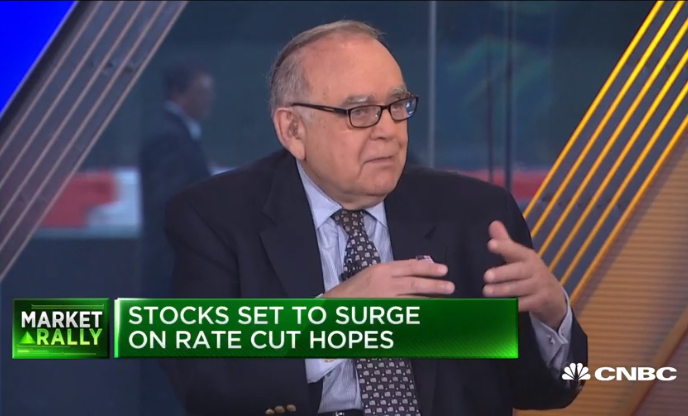Omega Advisors founder and billionaire investor Leon Cooperman advises average retail investors should do whatever they can to avoid panic as the coronavirus takes its toll on the U.S. stock market, spurring the worst week since the Great Recession.
The three major U.S. indexes ended last week in correction territory after falling more than 10% from recent record highs. In all, it was the worst trading week since October 2008.
The market is presenting a nice buying opportunity for investors, and it showed as the Dow Jones index rose around 200 points by the opening bell Monday morning and was up a whopping 750 points by lunch time on the East Coast.
But Cooperman warns that investors should not turn to margin buys in an attempt to take advantage of the recent lows.
“Just know what you own and be patient,” Cooperman said in the Sunday interview on the CNBC special, “Markets in Turmoil.”
Margin trading is a tactic where someone borrows money from a brokerage firm to use for a particular investment, but Cooperman isn’t a fan. CNBC “Mad Money” host Jim Cramer also warned against margin trading last week, but said investors should buy the dip if they can afford to.
“If you don’t have a decent amount of cash on the sidelines, you shouldn’t do any buying here,” Cramer said last week.
Cooperman, who called himself “an uninformed optimist,” definitely thinks the coronavirus will have an impact on the economy, but he also believes health officials around the world will be able to contain the threat.
“It will be contained sooner than one thinks,” he said. “The economy will definitely be hurt, but I think we’ll avoid a recession and some of this demand is deferred, not obliterated.”
He also said that anyone taking a more bearish view of the coronavirus and its impact on the global economy should “step aside.”
“If you believe it’s going to be out of control and we’re going to be in a recession, step aside because the market will go lower,” Cooperman said.
Markets are now betting on the Federal Reserve to step in and slash interest rates in response to the coronavirus threat. The latest CME FedWatch reading shows a 100% chance of a 50-point cut to a range of 1% to 1.25% during the central bank’s March 18 meeting.
But Cooperman thinks the Fed should consider a different approach: reinstating the uptick rule.
“If you ask me, cutting the rates or reinstating the uptick rule? I say reinstate the uptick rule,” Cooperman said. “Rates are already low enough.”
The uptick rule was created in 1938 by the Securities and Exchange Commission to prevent short sellers from putting even more pressure on a company that was already struggling, but it was eliminated in 2007 when electronic trading started to become the norm on Wall Street.
Cooperman thinks short sellers have only made the market volatility worse, and reinstating the uptick rule would cut down on some of the violent market swings.
“In the last hour on Friday, the S&P 500 moved (up) like 100 points,” he said. “That’s not related to economics.”
Friday saw the Dow again down more than 1,000 points during the day until a last-minute surge in the final hour of trading. The index closed down only 357 points. The Nasdaq and S&P 500 had similar bounce-backs in the afternoon.




